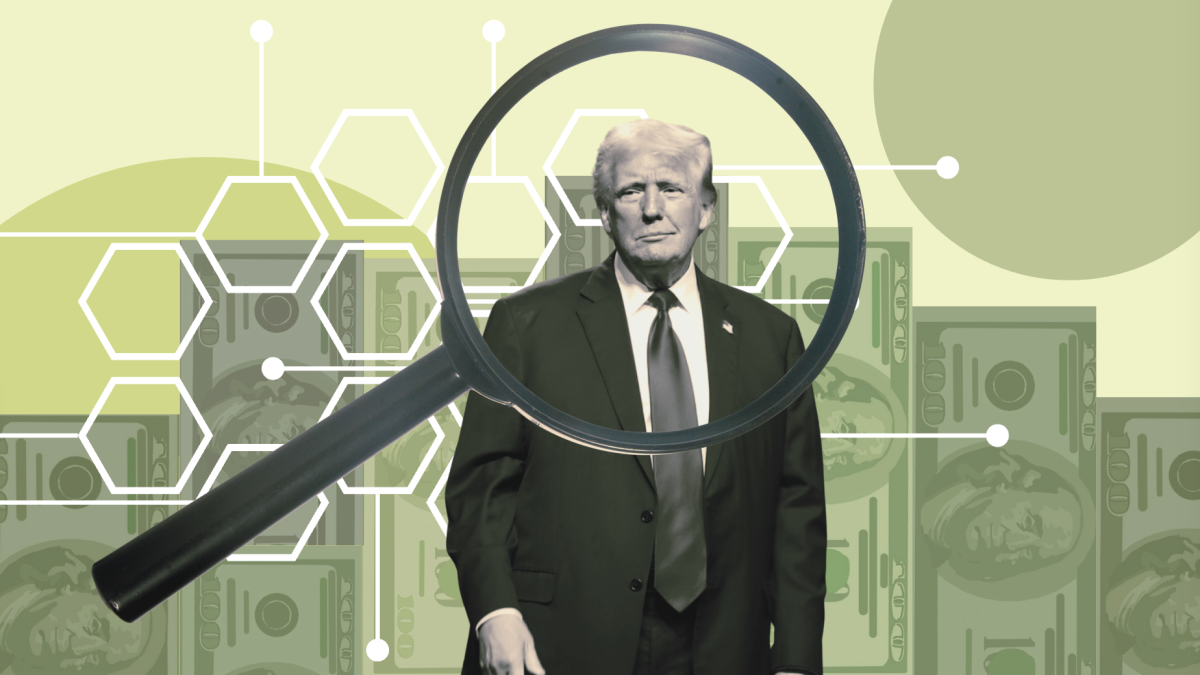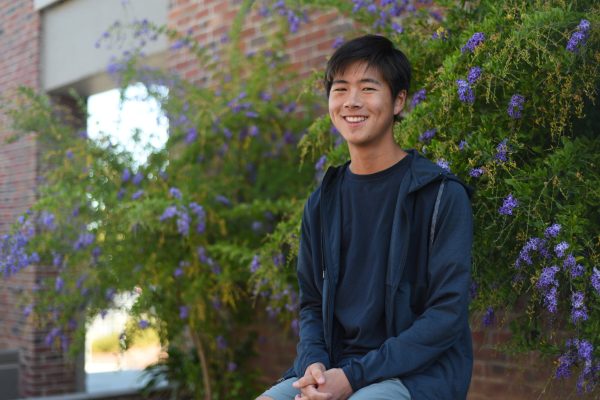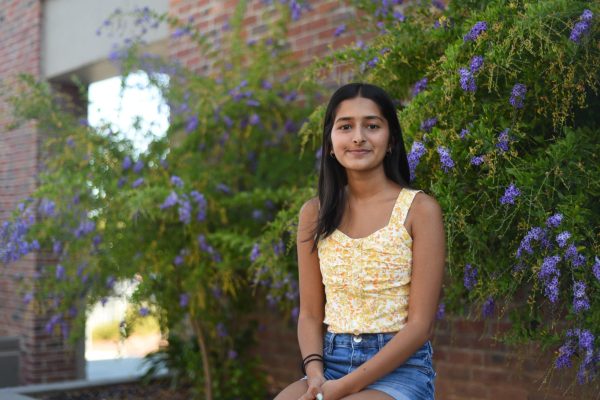The Trump administration froze $2 billion in federal grants to Harvard University following the school’s resistance to Trump’s recent policy demands in March. The grants, cut as a result of Harvard’s supposed failure to fulfill “its obligations to curb and combat antisemitic harassment” in light of earlier protests surrounding the Israel-Hamas War, primarily funded technological and medical research around cancer, heart disease and neurodegenerative diseases.
The administration’s rough handling of research reflects a growing disregard for scientific inquiry in higher levels of government. Not only does it disrupt notable institutions such as the Centers for Disease Control and Prevention and UNESCO by undercutting their credibility and limiting their influence, but it also restricts student opportunities.
In the first 100 days of Trump’s presidency, U.S. research institutions have faced drastic defunding in the administration’s effort to divert resources from providers of “misleading information, risky research and the promotion of dangerous ideologies” and cut expenses. The executive orders that prompted this defunding also erased web pages that voiced the importance of HIV research.
Associate Professor of Medicine at the University of Chicago and infectious disease physician Jessica Ridgway primarily focuses on HIV prevention, working to dissolve the barriers people face in getting treatment, including financial constraints, mental health challenges and a lack of social support. One of Ridgway’s grants, initially funded by the National Institute of Health, was terminated near the end of March. Her grant was originally spent studying possible treatments for substance use disorder for people living with HIV.
“It’s really setting us back to cut research that’s related to HIV at this moment in time,” Ridgway said. “We’re at a time in the United States when we have the tools necessary to actually end the HIV epidemic around the world. We’re making great strides toward decreasing the rates of new HIV acquisitions, both in the United States and globally.”
Once the grant was terminated, Ridgway’s team was left with inadequate resources. As a result, they were forced to let go of participating study staff and enrolled patients. Though Ridgway herself was upset, she has expressed more concern on behalf of her staff and patients.
“The staff were understandably disappointed,” Ridgway said. “Their research is in HIV, and there are lots of other institutions and other studies that have lost funding, so it’s not a great time for them to be trying to find new work in this area. The patients were disappointed, too, because this was the reason they agreed to participate in the study.”
Junior Suhani Pahuja joined Interdisciplinary Research and Project Design as a sophomore, inspired to research autoimmune diseases after her younger sister’s diagnosis with Type 1 Diabetes in 2020. Driven by curiosity and passion, Pahuja’s work primarily focuses on the relationship between cancer and epigenetic biomarkers.

“Although the tech industry and AI are expanding at a rapid rate, they can never really replace healthcare without medical research advancements,” Pahuja said. “Doctors rely on healthcare research for improved methods and improved technology to better support patients overall. Without that, we’re effectively compromising the country’s healthcare system.”
Pahuja was recently accepted into MIT’s Research Science Institute program, where she will be studying biology and biotechnology. RSI is typically free for students. However, in light of recent federal funding cuts, the program was forced to collect donations from those accepted. Sophomore and Health Student Tutor Aeshna Chatterji has noticed a trend in which the retraction of government funding impacts educational opportunities like RSI.
“A lot of the research being funded by grants influences the way that we, as a public and in a classroom, learn about health,” Chatterji said. “Without access to those studies, our personal ability to learn about health is severely hindered.”
Science curriculum lead and IRPD teacher Kavita Gupta dedicates her teaching to helping each student design, implement and scale their own research-based passion project. Each student enters IRPD with a variety of skills and ideas, and they are taught research skills and how to apply analytical reasoning to investigations. Gupta worries funding cuts will stunt scientific progress, ultimately leaving students uncertain about whether or not careers in research will be viable.
“It’s so disheartening to hear about funding cuts for something so instrumental in the advancement of knowledge,” Gupta said. “Not having science-based discoveries and ways to move forward and advance in science is simply mind-boggling.”
One of Gupta’s students, IRPD member Anirud Sainarayanan, has dedicated his sophomore year to researching the potential uses of AI for mangrove conservation. According to Sainarayanan, environmental research is undervalued by the Trump administration. He notes that, while applying for grants is already complex, Trump’s policies will further complicate his research plans, reflecting a possible future in which the hindering of scientific progress will impact national advancement.
“These cuts are very harmful for the progress of the country,” Sainarayanan said. “I don’t like how they’re trying to cut research down and make people more uneducated.”
Chatterji agrees that cutting research is dangerous, as it only limits the scope within which scientists can work. She believes that, by distancing itself from research as a whole, the U.S. is isolating itself and halting international cooperation.

“The people that are studying global health and public health are doing it to make an impact on the entire world,” Chatterji said. “But now, you’re limited by the opportunity to not explore beyond your country. The United States is taking on a U.S.-first mindset. And if our country isn’t going to value health, then who is?”
The U.S. has historically been at the forefront of public health research, with two American scientists leading the development of the COVID-19 vaccine in 2020. Furthermore, the U.S. government contributed $32 billion to mRNA research, allowing for a swift response to the COVID-19 outbreak. Ridgway worries that without this proactivity and support for research from the government, scientists will be unprepared for possible future pandemics.
“It’s inevitable that eventually there will be another pandemic, and it could be way worse than COVID was,” Ridgway said. “People will die, and they didn’t have to die if we hadn’t invested and had been able to invest in research and being prepared for the spread of infectious diseases.”
Furthermore, the U.S. government is highly regarded for supporting global health by funding research in low- and middle-income countries. The devaluing and defunding of national research undermines the importance of health worldwide, not only jeopardizing international safety, but also damaging the U.S.’s image.
“The United States is looked on from around the world as a shining star of research,” Ridgway said. “I can’t even begin to name all the advances that we’d lose. I can’t say enough how important funding research and investing in research really is for the health of Americans, but also just the health of everyone around the world.”
Sainarayanan shares this sentiment, emphasizing that curiosity propels the world forward and expands scientific horizons. He worries the U.S. will fall behind on the global stage without research fueling innovation.
“Research helps us progress further and move ourselves from what we were before,” Sainarayanan said. “Cutting funding will just hold us back and not let us be the best we can be. We’re always learning something new, and there are always different things to be researched.”
Chatterji hopes to pursue a career in health advocacy, recognizing the universal significance of medical research and wanting to spread awareness. Though she worries this path will not go far under the Trump administration, Chatterji believes health is the one value that transcends all other boundaries, which is why it remains critical to research.
“You can have a million problems, until you have a health problem, then you have just one problem,” Chatterji said. “There are so many things that are set up to divide us as people. Race, religion, ethnicity, gender identity. No matter who you are, health is the one thing that is universal, and it’s the one thing that everybody has.”
The Trump administration released a proposed budget plan for 2026 on May 26, 2025, containing a 26.2% cut to the Department of Health and Human Services as well as eliminating cancer screening and prevention programs at the CDC. Chatterji, aware that cancer screening programs have the potential to revolutionize cancer treatment and assist professionals in discovering potential cancer early enough to treat it, was disheartened by the news. Gupta agrees, believing research is not only at the heart of the U.S.’s economic engine but also instrumental for the well-being of society.
“The more patents you have and the more research you do, the more you positively impact human lives,” Gupta said. “Because past researchers had funding and support, their work is curing diseases and genetic disorders and has promise for really pesky human diseases, not to mention increasing the productivity of crops for humanity or finding ways to reduce carbon from the atmosphere. Research is at the core of humanity.”

Despite these funding cuts, researchers are staying resilient and continuing to advocate for their projects. Ridgway recently appealed the termination of her grant and has been reaching out to foundations and private companies for alternative funding. Additionally, she has continued to support her patients, even without government-provided financial stability.
Although the future of research remains uncertain, Pahuja currently plans to follow a pre-med track in college, striving to continue her studies and pursue various research internships. She remains hopeful that scientific research will regain public recognition and professionals will stay motivated in this period, even as their work is under fire.
“As a country, we have made numerous advancements in the healthcare industry, even with limited access to resources,” Pahuja said. “I do not think that progress will stop entirely due to these cuts. The rate at which we can make progress and advancements in the healthcare industry will definitely be diminished. But I think it’s definitely recoverable as long as our future presidents and our future leaders are more cognizant of the importance of this funding.”
Gupta encourages professionals and students alike to stay optimistic about the future of research. Especially now, she believes it is critical for younger generations to acknowledge the importance of science and continue to support curiosity.
“Things don’t remain the same,” Gupta said. “There is a future, and we need researchers now, all the more than ever before. We need critical thinkers. We need technologists. We need humanity makers. The future of research has to be of value for humanity, so don’t lose heart. Stick with it.”
Correction (May 27 11:00 PM): Pahuja is no longer planning to attend RSI.












